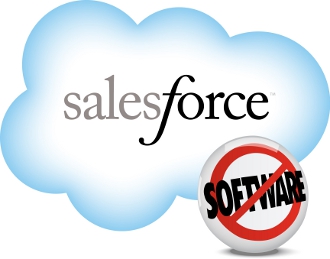 Around 10 percent of IT security enterprise products will be delivered through the cloud by 2015, Gartner has said.
Around 10 percent of IT security enterprise products will be delivered through the cloud by 2015, Gartner has said.
Gazing into its crystal ball, the analyst house has also said that these services will also drive changes in the market landscape, particularly around a number of key security technology areas, such as secure email and secure Web gateways, remote vulnerability assessment, and Identity and Access Management (IAM).
It said as a result it expected the cloud-based security services market to reach $4.2 billion by 2016.
Eric Ahlm, research director at Gartner said demand remained high from buyers looking to cloud-based security services to address a lack of staff or skills, reduce costs, or comply with security regulations quickly.
He said the shift in buying behaviour from the more traditional on-premises equipment toward cloud-based delivery models offered “good opportunities for technology and service providers with cloud delivery capabilities.”
He warned that those without such capabilities needed to act quickly to adapt to this “competitive threat.”
Gartner referenced a security survey from January which it said showed high demand from security buyers for cloud-based security service offerings. Security buyers from the US and Europe, representing a cross section of industries and company sizes, stated that they planned to increase the consumption of several common cloud services during the next 12 months.
The highest-consumed cloud-based security service is email security services, with 74 percent of respondents rating this as the top service.
Furthermore, 27 percent of the respondents indicated they were considering deploying tokenisation as a cloud service, while another area cited for growth was security information and event management (SIEM) as a service.
Gartner is now advising value-added resellers (VARs) to supplement product implementations with cloud-based alternatives that offer large customers reduced operational cost and thereby increase the likelihood of customer retention in this market segment. VARs that fail to offer cloud-based alternatives might experience a decline in implementation revenue from customers seeking cloud-based solutions in certain market segments.
Around 10 percent of IT security enterprise products will be delivered through the cloud by 2015, Gartner has said.
Rubbing its crystal ball the analyst house has also said that these services will also drive changes in the market landscape, particularly around a number of key security technology areas, such as secure email and secure Web gateways, remote vulnerability assessment, and Identity and Access Management (IAM).
It said as a result it expected the cloud-based security services market to reach $4.2 billion by 2016.
Eric Ahlm, research director at Gartner said demand remained high from buyers looking to cloud-based security services to address a lack of staff or skills, reduce costs, or comply with security regulations quickly.
He said the shift in buying behaviour from the more traditional on-premises equipment toward cloud-based delivery models offered “good opportunities for technology and service providers with cloud delivery capabilities.”
He warned that those without such capabilities needed to act quickly to adapt to this “competitive threat.”
Gartner referenced a security survey from January which it said showed high demand from security buyers for cloud-based security service offerings. Security buyers from the US and Europe, representing a cross section of industries and company sizes, stated that they planned to increase the consumption of several common cloud services during the next 12 months.
The highest-consumed cloud-based security service is email security services, with 74 percent of respondents rating this as the top service.
Furthermore, 27 percent of the respondents indicated they were considering deploying tokenisation as a cloud service, while another area cited for growth was security information and event management (SIEM) as a service.
Gartner is now advising value-added resellers (VARs) to supplement product implementations with cloud-based alternatives that offer large customers reduced operational cost and thereby increase the likelihood of customer retention in this market segment. VARs that fail to offer cloud-based alternatives might experience a decline in implementation revenue from customers seeking cloud-based solutions in certain market segments.
 Cloud integration is one of the hottest tech trends around and spending on cloud-based services is set to continue for years to come.
Cloud integration is one of the hottest tech trends around and spending on cloud-based services is set to continue for years to come.














